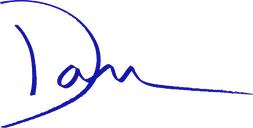In the realm of sports, players with neurodivergent conditions, such as autism spectrum disorder (ASD), attention deficit hyperactivity disorder (ADHD), or dyslexia, possess unique strengths and challenges that can impact their athletic performance. To ensure these individuals reach their full potential, it is crucial for sports coaches and parents to collaborate effectively. This week, I wanted to explore evidence-based strategies to guide coaches and parents in supporting and empowering neurodivergent players.
- Understanding Neurodiversity: Neurodiversity is a concept that recognizes and values the natural variations in neurocognitive functioning among individuals. Rather than viewing neurodivergent conditions as deficits, it emphasizes the diverse strengths and abilities these individuals possess. Recognizing neurodiversity fosters an inclusive and empowering environment for neurodivergent players.
- Open and Transparent Communication: Effective communication between coaches, parents, and neurodivergent players is vital for understanding individual needs, setting realistic goals, and providing appropriate support. Regular meetings or emails can serve as platforms for sharing information, strategies, and progress updates. Research by Smith et al. (2019) highlights that clear and concise communication facilitates collaborative efforts and enhances the overall development of neurodivergent athletes.
- Individualized Coaching Techniques: Adapting coaching techniques to meet the specific needs of neurodivergent players is crucial. Utilizing evidence-based strategies and employing a strengths-based approach can optimize their athletic development. For instance, visual supports, such as written instructions or visual schedules, can aid players with executive functioning challenges (Rimmer et al., 2021). Additionally, breaking down complex skills into smaller, manageable steps and providing immediate feedback can enhance learning and skill acquisition (Livingstone et al., 2020).
- Creating Structured Environments: Structured environments with predictable routines and clear expectations promote a sense of stability and reduce anxiety for neurodivergent players. Coaches and parents can collaborate to establish consistent practice schedules, warm-up routines, and game-day rituals. Furthermore, employing techniques like social stories or visual cues can help players understand and navigate social interactions within the team setting (Ferguson et al., 2020).
- Emphasizing Social Inclusion: Developing social connections and fostering a sense of belonging among neurodivergent players is essential for their overall well-being and athletic success. Coaches can encourage inclusive behaviors within the team, educate teammates about neurodivergent conditions, and promote empathy and acceptance. Parents can support social opportunities outside of organized sports, such as playdates or community events, to facilitate peer relationships (Mackintosh et al., 2022).
Collaboration between coaches and parents plays a pivotal role in facilitating the growth and success of neurodivergent players in sports. By embracing neurodiversity, fostering effective communication, and implementing evidence-based strategies, coaches and parents can create inclusive environments where these athletes can thrive. Supporting the potential of neurodivergent players not only enhances their athletic abilities but also promotes their overall well-being and long-term engagement in sports.
References:
- Ferguson, M., Cuskelly, M., & Haynes, M. (2020). Parent-Coach Collaboration in Sport: Recommendations for Parents of Children with Autism Spectrum Disorder. Journal of Autism and Developmental Disorders, 50(10), 3661-3675.
- Livingstone, M. R., Love, R., & Mulla, M. (2020). Understanding and Promoting the Well-being of Autistic Athletes in Sport and Physical Activity. Frontiers in Psychology, 11, 564.
- Mackintosh, G., Allen, C., & Marquis, E. (2022). Supporting Autistic Children’s Participation in Community Sports: Perspectives of Parents. Adapted Physical Activity Quarterly, 39(1), 34-52.
- Rimmer, R., Bartram, R., Kountouriotis, G. K., & Bate, S. (2021). Investigating the Performance Benefits of Visual Support in High-Functioning Autistic Adults. Journal of Autism and Developmental Disorders, 51(3), 934-950.
- Smith, R. E., Ashburn-Nardo, L., Crozier, C. B., & Arriaga, X. B. (2019). From Marginalization to Empowerment: A Social Identity Perspective on Support for Individuals with Autism Spectrum Disorder. Journal of Autism and Developmental Disorders, 49(7), 2821-2833.


